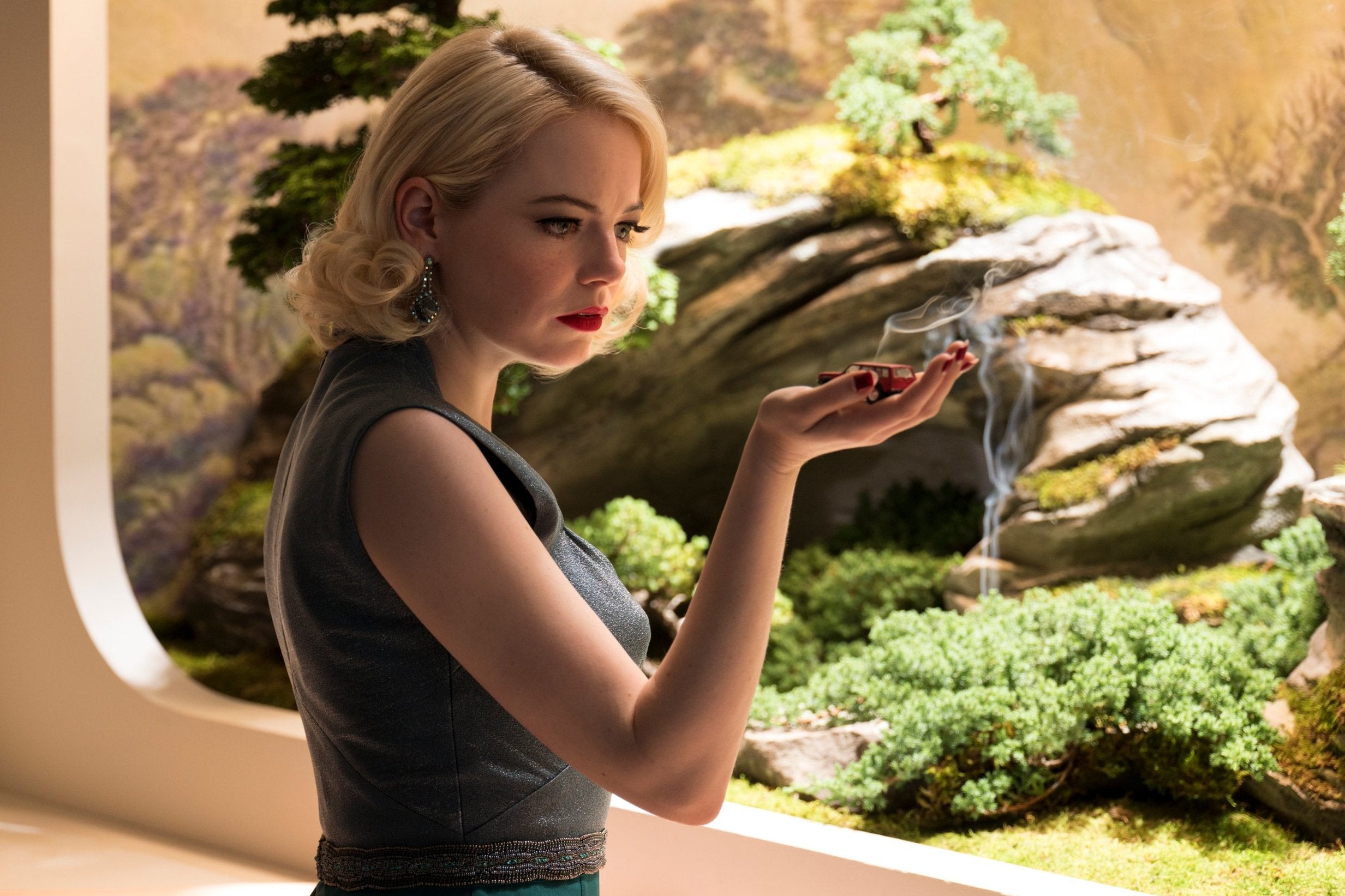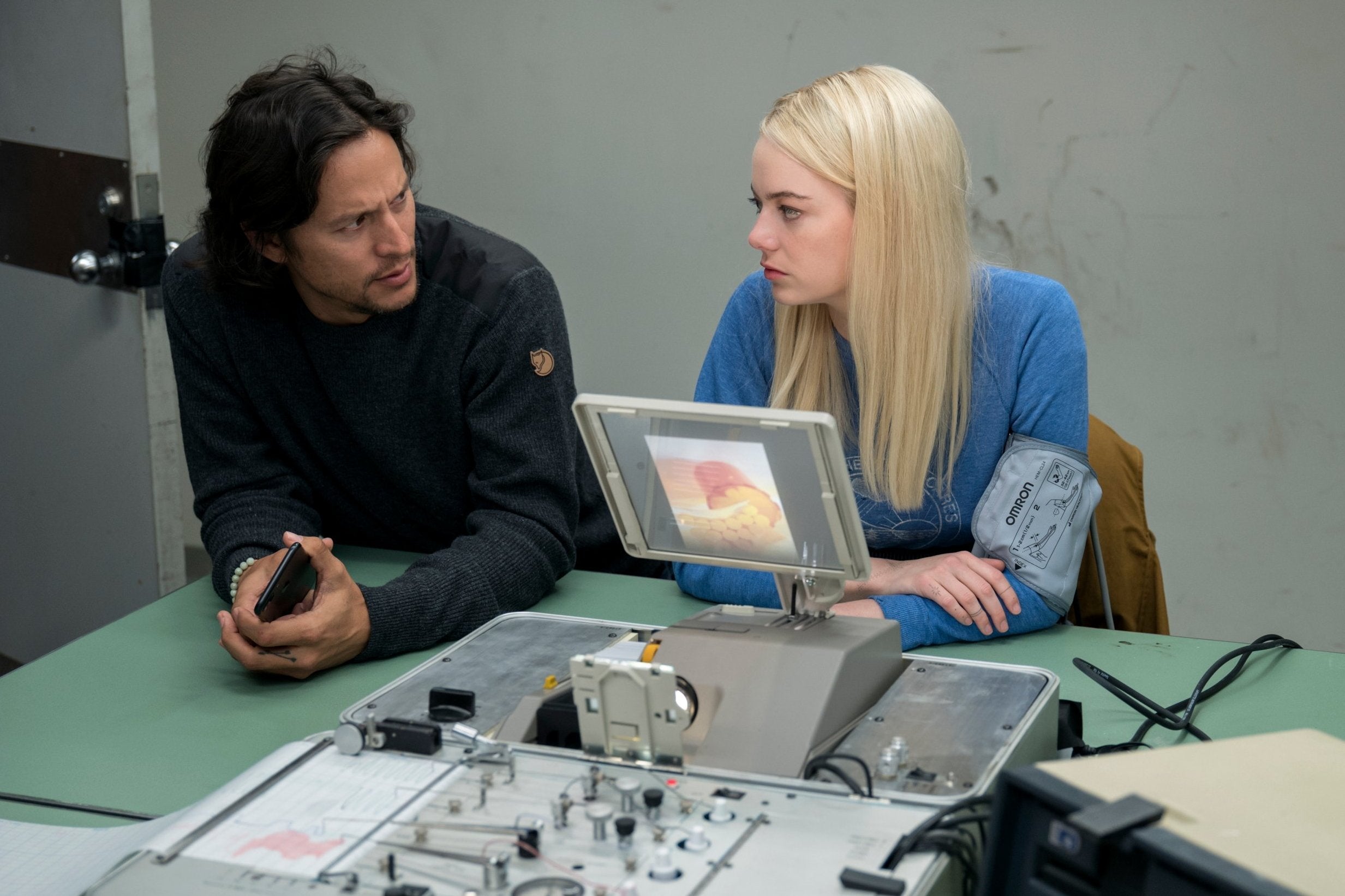Maniac: Emma Stone and Justin Theroux on why this is Netflix's most ambitious series yet
The team behind the new series lift the lid on the show's bewildering premise


Your support helps us to tell the story
From reproductive rights to climate change to Big Tech, The Independent is on the ground when the story is developing. Whether it's investigating the financials of Elon Musk's pro-Trump PAC or producing our latest documentary, 'The A Word', which shines a light on the American women fighting for reproductive rights, we know how important it is to parse out the facts from the messaging.
At such a critical moment in US history, we need reporters on the ground. Your donation allows us to keep sending journalists to speak to both sides of the story.
The Independent is trusted by Americans across the entire political spectrum. And unlike many other quality news outlets, we choose not to lock Americans out of our reporting and analysis with paywalls. We believe quality journalism should be available to everyone, paid for by those who can afford it.
Your support makes all the difference.At least once a week on the set of Maniac – while she was stepping into rainbow-patterned scrubs to steal a ring-tailed lemur, or donning elf ears for a trek through quasi-Middle Earth – Emma Stone would think to herself, “Well, at least we’re really swinging for the fences.”
It could have easily been a strikeout. Maniac, the new Netflix series loosely based on a Norwegian TV show of the same name, is bizarre, bewildering, ambitious fare. It is a show that throws everything at the wall, discards what sticks and lovingly picks up what doesn’t. The whole thing, concedes Stone, “is so absurd, in so many ways”. But there’s something magical about it.
Directed by Cary Fukunaga, best known for True Detective and Beasts of No Nation, and written by novelist Patrick Somerville, the show is set in a retro-futurist world – “We decided that somewhere in the 1980s the timeline splits between our world and the real world,” says Fukunaga – and follows two participants in an experimental drug trial.
The first is Owen Milgrim, played by Jonah Hill, clearly relishing playing against type. Owen is withdrawn, despondent, and comically out of place among his rich, obnoxious family. He sees things that may or may not be real, and 10 years ago suffered some sort of “psychotic break”. A family portrait – minus Owen – hangs on the wall of his parents’ home. “They’re gonna paint me in,” he says, unconvincingly. “The artist just took a six-month sabbatical to study the light.”
The second is Emma Stone’s Annie Landsberg, a wily, irascible drug-addict unable to deal with a family tragedy. There’s no one like Annie in the Norwegian version, but Fukunaga was desperate to have Stone on board. “She was one of those people I always wanted to work with,” he says, “and that’s not really a long list of people. When Michael Sugar, the producer, asked me who I wanted [to cast], the first person out of my mouth was Emma.”
It was Stone who suggested Hill as her co-lead, having not worked with him since they starred together in Superbad over a decade ago. “We’ve had a friendship throughout that time,” she says, “and we’ve been able to check in with each other as the years have gone on, so it was just nice to work with my pal.”

When Annie and Owen find themselves at Neberdine Pharmaceutical Biotech to help test a drug – a course of three drugs, in fact, which Dr James Mantleray (Justin Theroux) hopes will “eradicate all unnecessary and inefficient forms of pain forever” – they don’t have a clue what they’ve let themselves in for. And neither will you.
“It’s that wonderful thing where you read a script,” says Theroux, “and you’re like oh I see where this is… oh no, I don’t see where this is going.” His character is persuaded to return to his beloved experiment, after a brief hiatus, by Sonoya Mizuno’s Dr Fujita (who in the meantime has created an accidentally-too-sentient computer) – and is perhaps the most absurd of the lot. When we first meet him, he is masturbating into an AI device strapped to his penis, his toupee lying on the other side of the room. “I thought it was a hilarious entrance to a character,” says Theroux. “It was like, let’s start with the smallest life possible, the saddest man.”

It’s from moments like this – along with the wacky, episode-long dream sequences in which our central characters adopt different personas – that the show derives its humour. It was important to Somerville and Fukunaga that mental illness, despite being intrinsic to the plot, should never be the butt of the joke.
“Compassion for mental illness, and representation of mental illness, was one of the first things we talked about,” says Somerville. “Doing it in a way that honoured the subtler tragedies and difficulties of grinding through the ‘normal’ world, and the idea of a disputed diagnosis, and how murky and blurry that can be for people. I was interested in trying to tell a story about how people’s paths through life get changed if they’re labelled as someone without a working mind.”
When you’re suffering – whether it be from a loss, a trauma or mental health problems – the idea of a pill to solve it all is an almost irresistible temptation. Could Fukunaga be persuaded, if such a thing were offered in the real world? “Well, I would say based on what we’ve written on the show,” he says, laughing, “probably not.”

Somerville agrees, though he’s eager to point out that the show is not a takedown of the pharmaceutical industry. “Pills save people’s lives,” he says. “Pills make people’s lives better, and in some cases pills just make people able to exist in the world when they wouldn’t have been otherwise. But it’s about the way Dr Mantleray says it takes three days, there are no side effects, and it’s easy. Nothing that is going to be effective in making people feel better is going to be easy.”
For Stone, who recently opened up about her lifelong struggles with severe anxiety, the show’s core message is that “it’s normal to not feel normal. [When you’re] dealing with stuff internally, to reach out and connect with people is vital. In this day and age, we tend to isolate ourselves under the guise of connection. We kind of have our own bubbles that we can live in, but it’s important to reach out, and rely on each other.”
Her one complaint? That she was strong-armed into dressing like Legolas from Lord of the Rings for one of the show’s drug-induced dream sequences. “As we were preparing for the show, Patrick and I learned that Emma did not like fantasy,” says Fukunaga with a smile. “She’d never even seen Lord of the Rings. She was like, ‘Please don’t make me do fantasy.’”
“It’s just that I’ve never wanted to play an elf!” says Stone. “I appreciate elves – I just don’t want to. It doesn’t fit for me. I was like, ‘Guys, you can’t make me play an elf...’” So, of course, they made her play an elf – albeit one with chewed-up ears and an attitude problem.
Ultimately, though, says Stone, “I love that they wanted to create something so insane. No matter how this turns out, I’m proud that we tried something big.”
Maniac premieres on 21 September on Netflix
Join our commenting forum
Join thought-provoking conversations, follow other Independent readers and see their replies
Comments